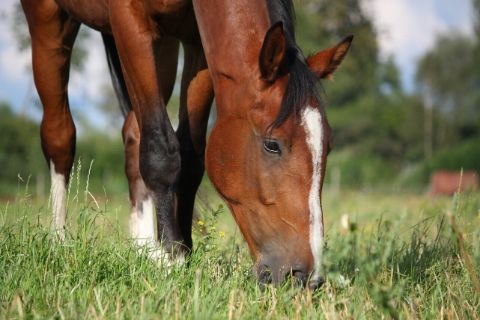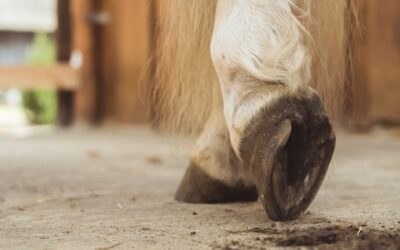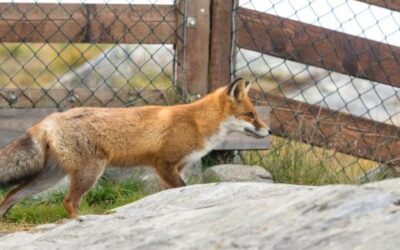
Just like humans, a horse needs a healthy diet in order to thrive. Whereas grains and vegetables serve as the main components of our diets, the main building block in a horse’s diet is forage. Generally speaking, forage comprises the vast majority of a horse’s diet and is most commonly composed of long-stemmed hay or pasture grass.
Selecting the best forage for your horse depends greatly on their individual dietary needs and health history. Regardless of their individual needs, however, forage is a necessary part of every horse’s diet and yields both physical and psychological benefits for your equine companion. This guide explores the importance of forage in a horse’s diet and how choosing the right forage can help your horse lead a healthier life.
Provides necessary nutrients
The main importance of forage in a horse’s diet is that it provides the nutrients and energy necessary for the horse to go about their day. Depending on the horse’s duties and daily activity level, they may require a greater amount of forage to provide them with adequate energy. In fact, some forages contain most of the major components that are necessary for a horse’s diet, including fiber, fats, protein, vitamins, and minerals. The protein content is highest in quality legume-based forage, such as chopped alfalfa hay. Protein aids in muscle growth and development and is very important in performance horses. The inclusion of necessary vitamins and minerals in forage, including calcium, phosphorus, and potassium, helps the horse maintain a healthy body structure and electrolyte levels. The combination of these vitamins, minerals, fats, and protein provides your horse with adequate energy. Added energy is extremely important for horses that are training or are in the later gestational period of pregnancy.
Combats gastrointestinal issues
Forage consists of mainly fibrous material. Though a horse’s stomach may be small, its hindgut and intestinal system are quite large and able to ingest large amounts of fibrous materials daily. A horse’s digestive system is quite complex and requires a substantial amount of fiber to function properly. The fibrous material is digested and fermented within the horse’s cecum and colon, helping to maintain a healthy bacterial population in the horse’s digestive tract. Because horses’ overall health directly correlates to their gastrointestinal health, they must receive high levels of forage on a daily basis. Furthermore, creating a diet built upon a base of forage reduces the chances of a horse developing many gastrointestinal issues, including colic or ulcers.
Promotes a healthy mind and body
Forage plays an important part not only in a horse’s physical health but also in their psychological wellbeing. Horses have evolved as trickle feeders, meaning that they spend a large portion of their time chewing and feeding. This slow and sustained feeding schedule helps to maintain the balance within their sensitive digestive system while also providing them an activity to busy themselves with throughout the day.
Horses that are unable to trickle feed on forage will often resort to other measures to keep their mouths and minds busy. This may include wood chewing, cribbing, or weaving. Horses require the mental stimulus of grazing and forage feeding to live a healthy, balanced life.




